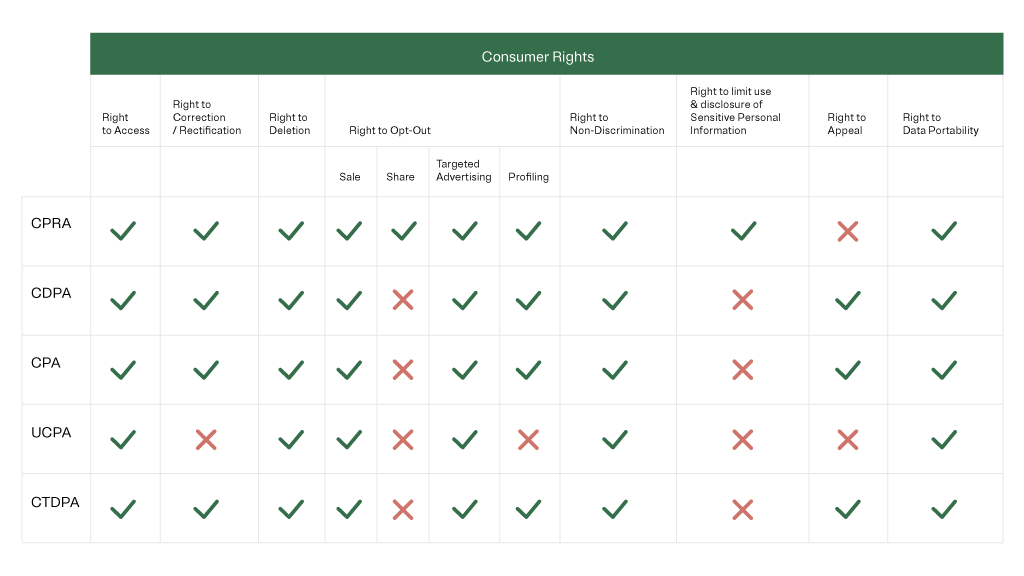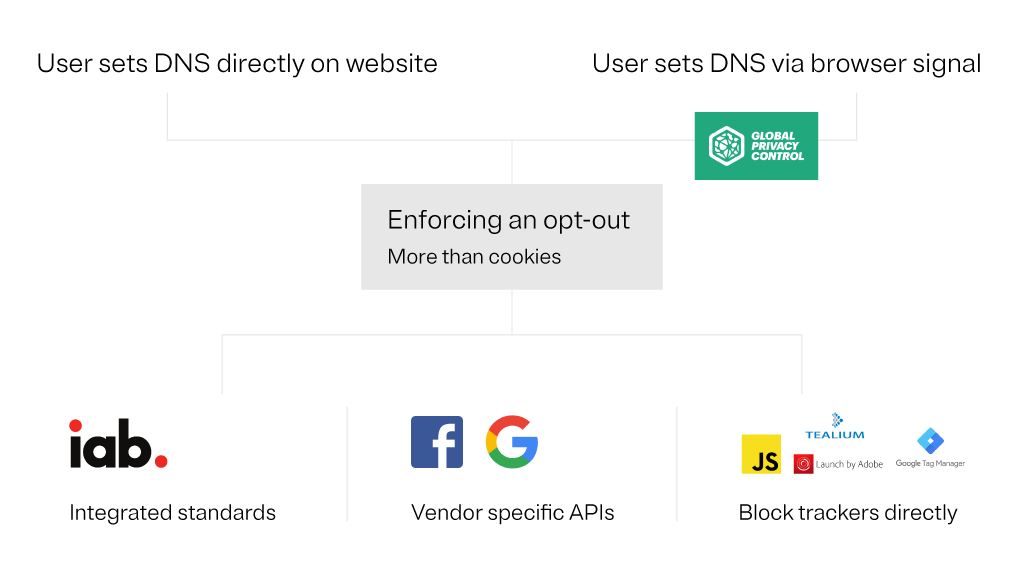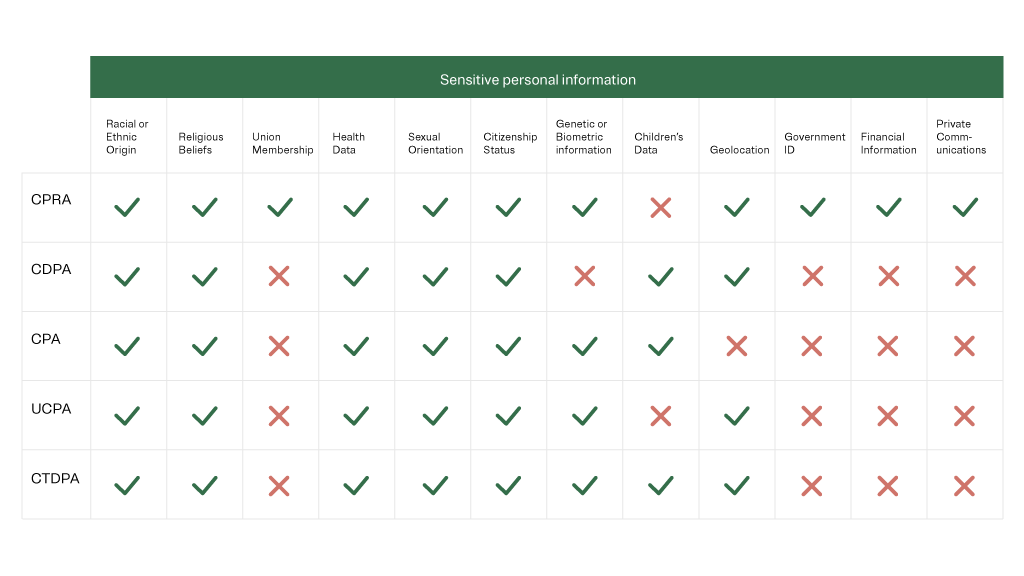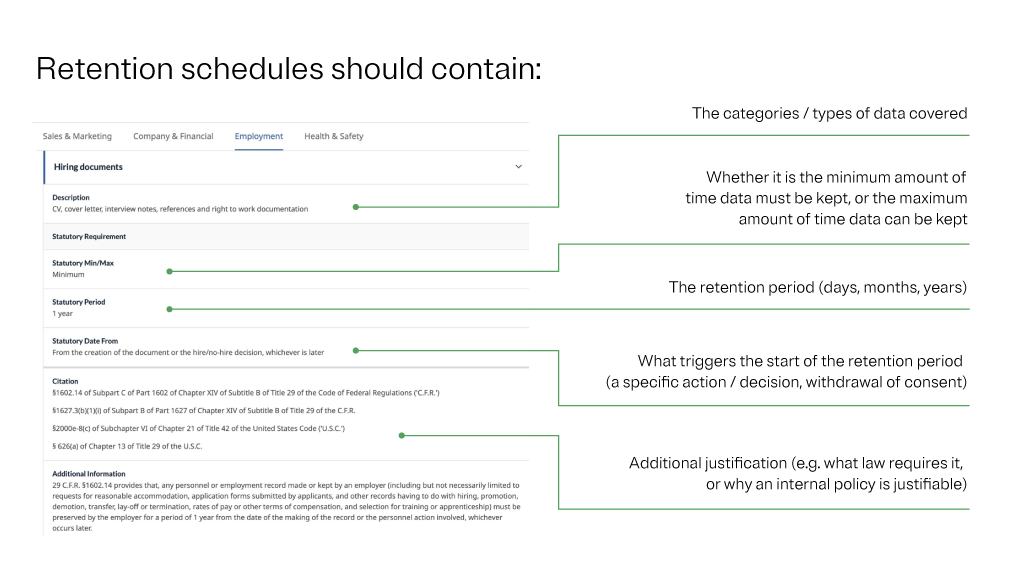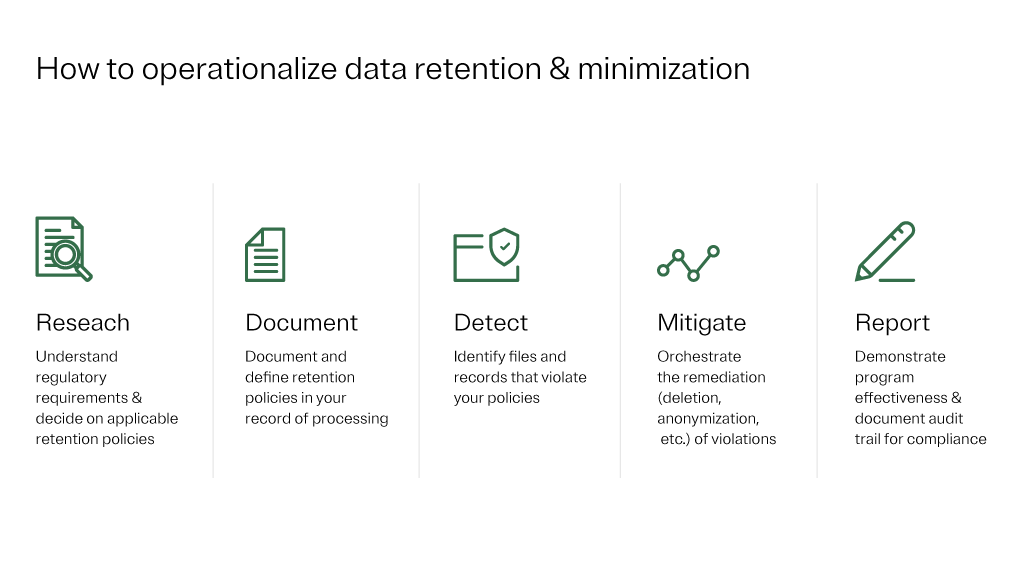The US privacy landscape has evolved since the first comprehensive state privacy law, the California Consumer Privacy Act (CCPA), was passed in 2018. Since then, Californians have voted the California Privacy Rights Act (CPRA) into law and five other states have passed their own comprehensive state privacy laws.
This complex patchwork will cause headaches for affected organizations of all sizes and all levels of maturity. For companies at the beginning of the maturity curve, focusing on the most visible aspects of US privacy compliance, such as consumer rights requests and privacy notices, can help prevent consumer complaints. As your organization matures its privacy program, refining internal operational efficiencies can launch your privacy program beyond compliance and toward promoting consumer trust. At the far end of the maturity scale, organizations can look to develop further policies for the use of personal information that is both lawful and ethical.
But, before you can tackle these three priorities, you must understand US state privacy and what challenges compliance might bring.
An update on US privacy laws
Six state privacy laws will be, or will become, effective between January 1, 2023 and January 1, 2025. These laws will define the US privacy landscape in lieu of a federal privacy framework. The comprehensive state privacy laws in the US include:
- California Privacy Rights Act (CPRA): Passed in November 2020, it will amend several key areas of the CCPA upon its entry into effect on January 1, 2023
- Virginia Consumer Data Protection Act (CDPA): Passed in March 2021, it will enter into effect on January 1, 2023
- Colorado Privacy Act (CPA): Passed in July 2021, it will enter into effect on January 1, 2023
- Utah Consumer Privacy Act (UCPA): Passed in March 2022, it will enter into effect on December 31, 2023
- Connecticut Data Privacy Act (CTDPA): Passed in May 2022 , it will enter into effect on July 1, 2023
- Iowa Consumer Data Protection Act (ICDPA): Passed in March 2023, it will enter into effect on January 1, 2023
Aside from the six comprehensive privacy laws that make up the US privacy landscape, organizations must also be aware of privacy laws with a significantly narrower scope of application in Nevada and Maine that entered into effect in 2019 and 2020 respectively.
While organizations focus on state-level privacy legislation, many of the incoming state laws include exemptions for personal information already covered by sectoral laws in the US.
- Gramm-Leach-Bliley Act (GLBA): Requires financial institutions to protect consumers’ financial information
- Health Insurance Portability and Accountability Act (HIPAA): Requires covered entities to prevent sensitive patient health information from being disclosed
- Children’s Online Privacy Protection Act (COPPA): Establishes guidelines for protecting the privacy of children under 13
- The US Privacy Act of 1974: Allows individuals to request records about themselves held by government agencies
These are just a handful of the different privacy laws that organizations must potentially contend with, not to mention countless other privacy-related statutes across the US. The case for a federal privacy law has never been clearer, and while the American Data Privacy and Protection Act (ADPPA) gathered significant momentum in the first half of 2022, there is still a long way to go before it can be considered a serious possibility.
Still waiting on a federal privacy law? Don’t hold your breath on ADPPA
US legislators are as close as they have come in over a decade to passing a federal privacy law. The ADPPA represents the first bi-partisan effort to pass a national privacy framework since 2011 and at the time of writing the bill is currently being discussed on the house floor ahead of mid-term elections.
However, despite the complexities of compliance with the patchwork of state privacy laws, don’t hold your breath for a federal privacy law to harmonize privacy legislation in the US. Several objections have already been raised at the ADPPA’s preemptions provisions, which are said to diminish the strength of consumers’ rights in states like California, which already has a high benchmark. And, at the earliest, the ADPPA wouldn’t enter into effect until the middle of 2023 even if it had a relatively smooth passage through the House and the Senate.
Instead, organizations should be looking ahead to January 1, 2023 and ensuring they have the appropriate measures in place to comply with the incoming laws and their most visible areas of compliance. Consumers will have a heightened awareness of their rights. Organizations that can’t fulfill these rights will likely find themselves falling foul of enforcement provisions and potentially losing the trust of their customers.
How to approach US privacy
In the absence of a federal privacy law, you can still take a unified and maturity-driven approach to the current patchwork of state privacy laws to alleviate the pressures of compliance with varying cross-state requirements.
Take the ever-changing nature of the US privacy landscape into account, look ahead to the horizon, and don’t discount laws that haven’t yet entered into effect. Be proactive and future-proof your privacy compliance programs to save time and resources that would be wasted reacting to each change as it comes.
Base your initial efforts on the areas of compliance that make the most sense compared to your organization’s maturity level. For example, an organization that is at an earlier stage of its maturity journey might opt to focus on ensuring they are able to fulfill consumer rights requests accurately and in the prescribed timeframes over building complex, fully automated programs.
Focusing on addressing these areas of compliance can help your business to achieve goals beyond compliance and begin to nurture consumer trust through thoughtful and measured actions.
Priority 1: Address the most visible and highly enforceable components
While there is little in the way of enforcement actions being taken against violations of state privacy laws, what we do know is that those responsible for enforcing the law are focused on violations of consumer rights and preferences. In California for example, the Office of the Attorney General (AG) has issued many notices of violations to organizations for breaches of the CCPA and recently handed down its first public enforcement action in relation to consumer opt-out requests not being respected.
Consumer rights
Generally, US state privacy laws offer a similar set of rights to consumers, though there are some nuances between each law that should be observed. For example, the CPRA expressly requires organizations to allow consumers to limit the use of their sensitive personal information and the UCPA requires organizations to provide consumers with the ability to opt out of processing personal information. Whereas other states require organizations to obtain specific opt-in consent before processing sensitive personal information. Furthermore, the CDPA, CPA, and CTDPA all offer consumers the right to appeal decisions made by organizations in relation to rights requests and neither the UCPA nor ICDPA include a right to correction.



